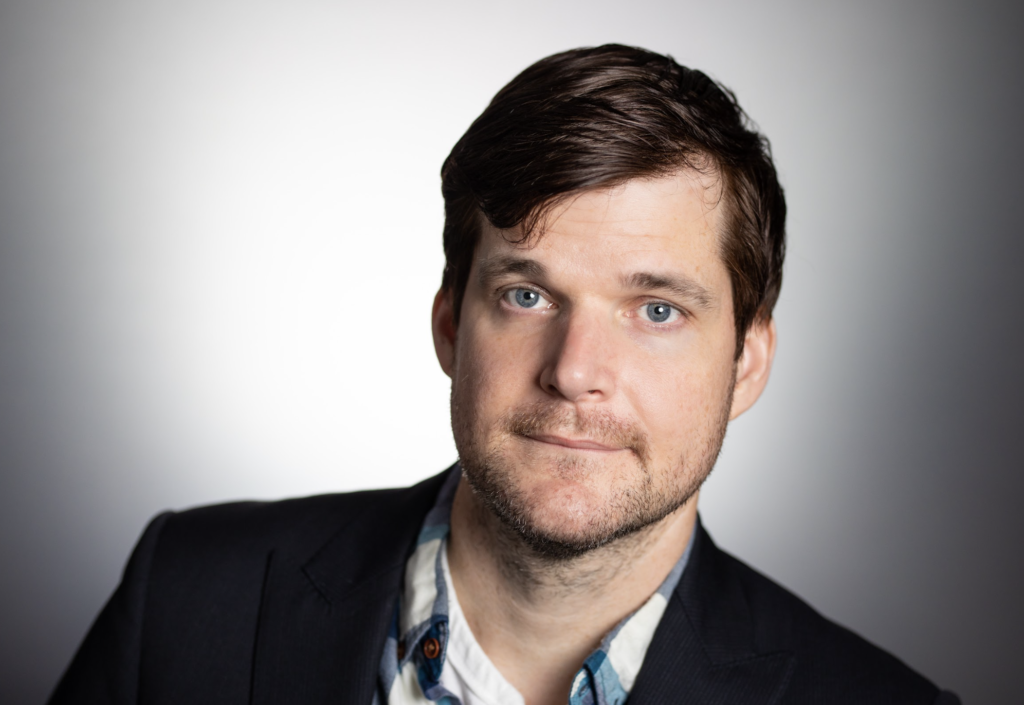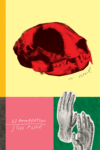
It’s a powerful process to allow music to inform your personality and expand your worldview. Perhaps the music is an expression of what you already think or feel, or perhaps you acquire new thoughts and understandings from it. In the 2000s, MySpace facilitated the sharing and absorbing of music, and the organic formation of communities around that music.
Top Eight: How MySpace Changed Music (Chicago Review Press) is about social media and music history, but it’s also a candid commentary on humanity, on creating and experiencing art, and on the corporatization that steers art away from authenticity. The author, Michael Tedder, is an entertainment journalist who has written for Stereogum, Esquire, GQ, The Daily Beast, The Ringer, and many other outlets.
In one volume, Tedder explains the musical identity of “emo”—online and offline—while acknowledging the success other genres found in virtual spaces. He interviews “the who’s who of MySpace,” from artists to music journalists to the architects of MySpace Music, who made it possible for bands to bloom and for fans to find them.
I spoke with Michael Tedder on Zoom about his story, an entire generation’s story, of encountering music on MySpace. The following is an edited version of our interview.

Allison McClain Merrill: I love the layout of this book, which includes your reported style along with oral history passages curated from your interviews. How did you decide on this particular style, and how did it help you tell the story of an entire social media platform and its major players?
Michael Tedder: Very early on, I considered the idea of just doing full oral history, but I quickly realized it just wasn’t going to work. There’s no real way to have someone naturally explain what MySpace is, because with oral history you’re really reliant on the quotes you have, and that’s a great thing, but sometimes you just need to give context, you need to set things up. And once I realized I had to explain, “Okay, here is what MySpace was, here’s why it started,” I wanted to avoid the writing feeling dry or expository, so I used my own opinions and critical analysis. I kind of wanted a combination of my critical thoughts, people speaking, and sort of something in between, where I would use people’s thoughts to tell the story in the reported passages, as well. So there was a lot of research. . . . My attempt was, I’d work really hard to make it feel like a smooth read. I’ll let the reader decide whether or not that’s the case. It takes a lot of work for something to feel easy.
You definitely achieved that goal, and I think a great way of setting it up is to talk about the history of social media in general. That’s one of my favorite things. I love internet history. I was born in the ‘90s, so I was at the perfect age to be kind of curious about the way that being online evolved over time. I would love to hear what was most interesting to you in looking at some of the very first instances of social media and how we even got to MySpace to begin with.
It’s interesting. A point I made in the book is, so much of life and success is timing, because there were early instances of what we would call social media in the mid to late ‘90s, but there just weren’t enough people online, and not enough people had high-speed internet for it to really work. There was SixDegrees, which was kind of a proto-LinkedIn. There was CollegeClub, things like that. A big one would be early online dating profiles. It’s not around anymore, but there was a website, Nerve. People had these very lengthy profiles. . . . It was before Tinder and swiping. Back then you would have to email someone, try to sound funny.
One thing I didn’t know before I did the research was how many early social media platforms existed for various minority communities. There was MiGente, AsianAve, BlackPlanet—and definitely MySpace founder Tom Anderson has admitted he looked at things like BlackPlanet and said, like, “This is an interesting idea, but they’re thinking too small.” Is that cultural appropriation? Yeah, probably. I’ll let the reader decide that. But I also wanted to make the point that there’s a lot of stuff that maybe wasn’t social media per se, but was early precursors. And that’s where I got into LiveJournal, AIM, Instant Messenger, things of that nature.
Early in the book you call MySpace “the best social networking site” as well as “the only good social networking site.” I would love to hear a little bit about your personal experience on MySpace. I’m wondering what bands you might have discovered there, and also if you made any lasting friends on this platform.
Yeah, I did make some friends. They were online friends. We’ve all migrated to Twitter together now. I joined in 2004, so I would love to say I was an early adopter, but that just wouldn’t be the case. But I loved it right away. I almost considered putting this in the book—I decided I didn’t want to bust out any of my friends—but I had this friend Curtis. I love Curtis, but he went to Pimp-My-Profile.com, which is a website where people could download codes, plop it into their MySpace, and trick it out however they wanted. And I would go to his MySpace page and say hi, and eight different music videos from all across the genres of pop, to indie rock, to rap, would play at the same time, every time I went to Curtis’s page. . . . I’m like, “Curtis, hey man, you have too many videos on your site.” He goes, “No, man, it’s cool. I love it. People can check out my music.” I’m like, “But they all play at the same time.”
As far as bands that I discovered, some early ones were Los Campesinos!, Clap Your Hands Say Yeah, Arcade Fire, a lot of the aughts-era indie rock bands. Later, of course, you had the more Chicago hipster rap scene. So I listened to Cool Kids, Kid Sister. I already knew about emo before I got on MySpace, but definitely I remember how many emo kids there were on the website. I feel like emo went from a thriving subculture to taking over the mainstream as soon as MySpace launched. I knew who My Chemical Romance were, but I remember listening to them and watching their videos on MySpace.
Looking at emo and The Scene, I am curious if there was anyone that you were particularly excited to talk to for this research for your book project.
Well, I’ve known Geoff Rickly for a while. I first interviewed him back when Thursday was around. I interviewed them for their album Common Existence, and we got dinner together, we hit it off, and we stayed in touch ever since because he’s just that nice of a guy. So when I got to interview him in person, it was like catching up with an old friend. And that was the first time I talked to him since he got sober. He has a book out called Someone Who Isn’t Me, which is about his struggles with heroin addiction, how he got clean six years ago, and I’m so grateful he’s clean. Talking to him was just wonderful. We have an easy shorthand.
It was great to talk with Motion City Soundtrack because they were very humble and self-effacing. They’re like, “Yeah, it’s weird because by 2012, our record label had dropped us and no one liked us anymore, and we had thought about quitting.”
Then the guitar player Joshua Cain is like, “Yeah, I had a good job as an Uber driver.” And people were like, “Why are you doing this? Weren’t you famous?” He goes, “I wasn’t that famous.”
But then, he said, “Something changed, and all of a sudden our band is popular again. Every time we do a tour, websites like BrooklynVegan, which never covered us, now cover us. I don’t know how that works.” And now they go on tour and they get huge crowds.
They’re like, “It’s funny because we never called ourselves an emo band. But as soon as we became popular, people said, ‘You’re emo.’ . . . Okay, I guess.”
I think it’s great that you actually dive into what emo is beyond just a look, the swoopy bangs and eyeliner that I certainly remember seeing in my youth. You get to the emotional purpose of that genre, of the people who were involved in it. After doing all of this research, what does emo mean to you now, after seeing all the different eras of it and how it sort of changed and was copied in different ways over the years?
I think emo, above all else, just means vulnerability and honesty. There are certain sonic signifiers of emo, but it depends. It can be twinkling guitars, it can be screened vocals, very impassioned yells, certain types of power chords you hear a lot with the genre, but I feel it’s more subjective than that. It’s kind of, you know it when you hear it. You know emo when you’re hearing a band and you feel like they’re being very honest, like there’s no artifice. It’s very, very direct.
On a more serious note, you don’t ignore the tragedy involved in MySpace’s history, including abuse, cyberbullying, suicide, as well as misogyny and homophobia. What was most important to you in lifting the veil on those distressing facts of this history and its actors?
There was a lot on MySpace that was great. I definitely feel it was like the golden age of social media. But I don’t want to pretend, I don’t want to whitewash history. I definitely want to be very honest. Like, there was a lot of cyberbullying. Whenever there is a platform, people will find a way to abuse it. They’ll find a way to abuse each other, to scam people. It’s just kind of how it is. That’s why moderation is so important. And to be fair to everyone, MySpace did try to moderate to the best of their ability. I talked in the book with Bích Ngọc Cao, who was head of MySpace Music, but really she was the head fan in charge. It was really important to her to not only ban racism from the website; they also banned homophobia. It was just very important to her that people weren’t allowed to use hateful slurs. And this was in 2004. This was pre-gay marriage. We were in, certainly, a different place in America, our culture was, in terms of acceptance of gay people. They got a lot of pushback from it. They got death threats for doing that, but they felt that was really important.
I also wanted to be honest about what was going on in the music scene—that, yeah, women were very often mistreated. Very often what happened was, young women in the emo scene or in general would get signed to a record label and they wouldn’t be allowed to write their songs. They had to work with this producer or that producer. And very often there was an attempt to really sexualize their image, the way they looked and dressed. There’s nothing wrong with being sexy. I’m not a prude. But you could definitely feel the heavy-handedness; it could get really icky and gross. I talked to Juliet Simms. She was a teenager from Florida. She had a demo that Bích heard. Bích put her on the front page and she got a record deal. And as soon as she signed, the record label was like, “Okay, we need you to be pop.” So they tried to make her sound more like Kelly Clarkson. Nothing wrong with Kelly Clarkson, but Juliet wanted to be more in a rock band.
She said, “Yeah, I’d be watching these videos. I’d make a music video, and I’d say, ‘How many times do I have to bend over in this video anyway?’ ‘Oh, so you need another photo of me in my bathing suit? Okay.’”
And then female artists and female fans, they faced discrimination all over the music scene, but especially at Warped Tour, there was a lot of gross behavior. I just wanted to bring that to light, make sure that’s a part of the record, that there was a lot that was great about the era. There was also a lot that was bad. The mistreatment of women, both fans and artists, continues to this day, and we just need to be very vocal about it and calling it out and trying to make conditions better.
How has your work as a music journalist shaped your understanding of the changing landscape, both from print to digital journalism and also with the corporate shifts in the music industry that you’re covering? It seems that the way musicians are platformed and discovered is different from the MySpace days, but perhaps not so different since social media is still a way in for a lot of people.
Yeah, it’s interesting because one person I talked to, a publicist, said, “Yeah, there was a time period I kept hearing, ‘Oh, any day now, Facebook is going to make a big push into music.’” And they never really did. You can, if you’re an artist, have your Facebook page, but it doesn’t really do anything. It doesn’t have the juice to it that MySpace had. With a MySpace page, people went to your page, they listened to your songs, they saw photos of you, they got your tour dates, they got your entire personality and vibe, and they would go from there, find other bands that you were associated with. You could get into a real rabbit hole of things. Facebook doesn’t have that, Twitter doesn’t really have that. I’ve discovered artists through Twitter. But that’ll just be people I follow. The thing about MySpace that made it great was, everything was in one place. You had the tour dates, you had the photos, you had the videos. These days, it’s all over the place. You can stream music over on Spotify, you can watch videos over on YouTube, you can go to a band’s Instagram page, but MySpace had everything at once.
I mean, it’s been a really tough year for digital journalism in general, but I kind of get the feeling we are reaching the end of something, because BuzzFeed shuttered its news division, MTV shuttered its news division. A lot of freelance budgets are getting cut all over the place. Vice declared bankruptcy. I think we are now going to see a push towards people realizing, okay, all these publications, they’re owned by publicly traded companies. There’s good writers there, there’s good editors there. But if a company is publicly traded, at any given point, people could get laid off because they’ll try to juice the stock prices. That’s what happened to BuzzFeed. We need smaller to medium publications, privately owned record co-ops. We need to build our own media because the current system we have is not working. It’s time for something else.
We’re seeing a lot of journalists who don’t even write for publications, like Anthony Fantano. He’s a YouTuber. He’s huge. We’re going to see more of that, more people who write whose platforms are YouTube or TikTok, and that’s great, but we also need the written word. We also need publications. We just have to have independent ones. And my hope is, we see a lot more of that this decade, that this is a rebuilding decade, but we’ll see.
One theme that I really want to pull out is growing with your musical interests on MySpace and just within the self. I love the way that you write about teenagers. It makes me really happy:
Music fandom can inform the core of your future adult identity, and it helps shape your values and how you see the world, hopefully in a way that nurtures empathy, curiosity and openness. Maybe it makes you seem a bit much to others, but it can also make you feel vibrantly alive. MySpace was that fandom in internet form, an easy way to stay engaged, and that’s what made it great for a time.
And then you go into Facebook being a little more adult, both visually and in some other ways. I would love to hear a little bit more about the importance for teenagers in this specific time period who are still finding themselves and finding identity, and either from your personal experience or the research you did, just how crucial MySpace and the artists represented in this time were for that journey.
I think you’re this way—because I definitely was this way—but if you’re a certain type of teenager, music is everything, and you’re wearing your favorite band’s T-shirt all the time, it’s the main thing you and your friends talk about. When I was a teenager, if someone wasn’t really into music, if they didn’t follow what was going on, I didn’t really have a lot to talk about with them because I didn’t really follow sports or whatever. And these days as an adult, I’m better about that. But I was even like that into a lot of my twenties. “Well, if you’re not into music or if you don’t watch the same movies or TV shows, I don’t really know what to talk to you about.” But over time you realize not everyone is a huge music fan. That’s fine, they’re still lovely people.
MySpace made it easier for people to get on the internet because before that, maybe you had LiveJournal, maybe you knew about this message board or that message board. But MySpace made it easy for anyone to plug right into the internet and go directly into the bloodstream, and that’s what made it easier to find new bands. And at one point, trying to find the hot new band of the day became like a fun game everyone was playing, because you’d go onto your friend’s page, like, “Oh, I don’t really know who Fall Out Boy is, I’ll go to their page,” that sort of thing. And it was great for a long time. One of the main things was, it’s all organic, fan-fueled passion. One thing that everyone who worked there told me was, “There wasn’t an algorithm. We didn’t use algorithms.” These days, everything on social media is an algorithm and it sucks out all the fun. It just makes things aggravating.
I’m curious about your thoughts on the power of music or any art today, or in any age, to drive this “connection” and “curiosity” and “community,” and how might we be succeeding in that or failing in that?
To retrospectively romanticize the era would be to rewrite history. The same problems of greed, prejudice, and unthinking cruelty that have always been part of society were amplified by the new digital tools. But so were the eternal virtues of connection, curiosity, and community.
A lot of things are written these days about how we have a real problem with social isolation and loneliness. And it’s especially true for, I think, young men. It’s very easy for young men to feel like they’re lonely, they don’t have any kind of community. I feel like everyone deals with that these days. We see community declining, there’s less church attendance. A lot of people report that they don’t really have any close personal friends. I feel like at this point the internet is making us more isolated from each other.
I’ve made a lot of friends through online music, just through message boards, through MySpace pages, because music fandom can bring people together. It can help you make friends, it can make you discover new interests, new hobbies, can just get you out of the house, get you talking to people. I think we need that more than ever. MySpace was a great website because it was fueled by music fandom. MySpace was fueled by the music community. And we need to find a way to get back to communities, to organic, real-world friendships.
Allison McClain Merrill is a writer and reporter focusing on TV history, music, and faith and culture. She has written for Vanity Fair, GLAMOUR, Insider, TODAY, SFGATE, Paste Magazine, and more. She earned a Master of Arts in Religion from Yale University.
This post may contain affiliate links.







